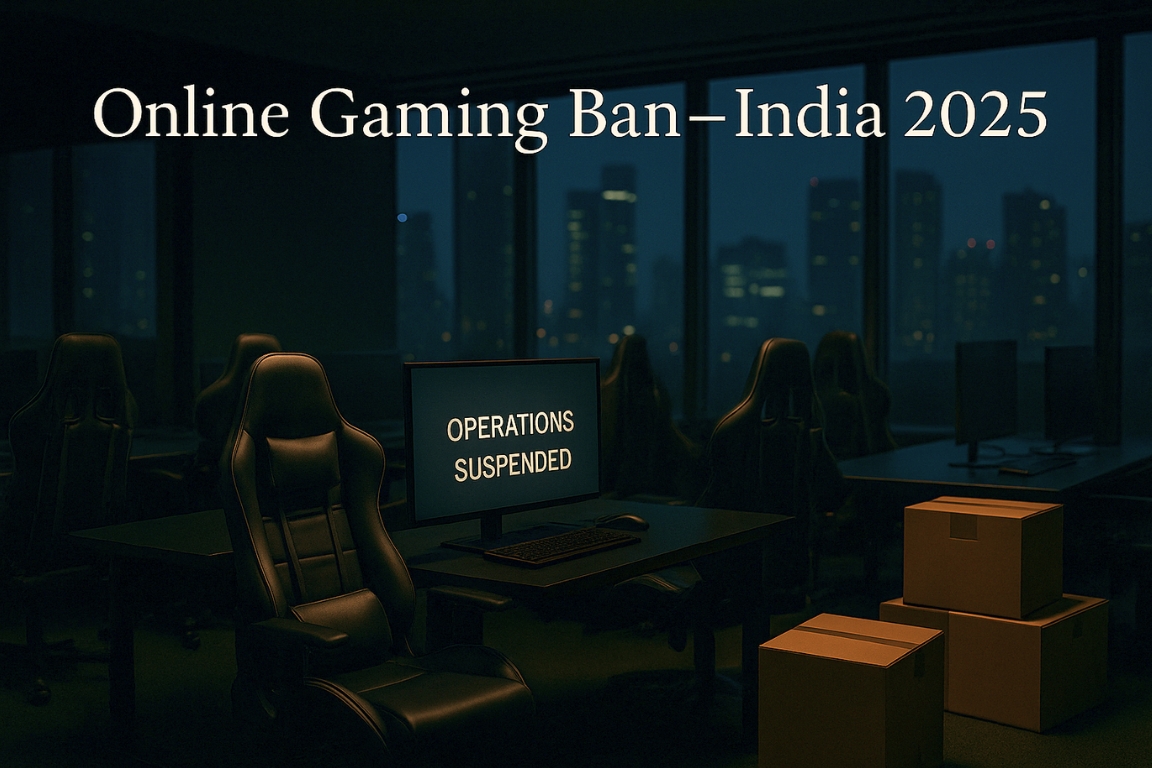The Promotion and Regulation of Online Gaming Bill, 2025 was passed in Parliament without debate, banning online real money games while allowing e-sports and casual games.
Key Features of the Bill
- Prohibits all online real money games.
- Aims to promote e-sports and social gaming.
- Was introduced and cleared without consultations with industry or States.

Economic Fallout
- Online gaming was a fast-growing sector, attracting heavy foreign investment.
- The sudden ban may discourage global investors, who now see Indian policy as unpredictable.
- The industry was expected to create over 1.5 lakh jobs by 2025 across programming, design, customer support, and analytics.
- The ban cuts off an expected ₹17,000 crore in GST revenue, hurting both the Centre and States.
Arguments Behind the Ban
- Government’s main concerns: Players facing financial ruin. Addiction resembling drug abuse.
- However, critics argue that regulation, not prohibition, would better address these harms.
- Some States (e.g., Tamil Nadu) were already working on balanced regulatory models.
Responsible Gaming Tools Ignored
- The industry was adopting global safeguards such as: Age-gating for minors. Deposit and time limits. Self-exclusion mechanisms. KYC and anti-money laundering checks. Bot detection and ethical advertising.
- By banning legal operators, players may shift to illegal offshore apps that lack these protections, increasing risks of fraud and unsafe practices.
Constitutional and Federal Concerns
- Article 19(1)(g) guarantees the right to practise any trade or profession; the ban restricts this right.
- Gambling and betting are State subjects, but the Union acted without State consultation, raising federalism issues.
- Courts have consistently upheld the legitimacy of games of skill, creating a grey area now complicated by the blanket ban.
Need for a Balanced Approach
- The choice is not between prohibition and total freedom.
- A licensing and regulatory framework with strict compliance rules and predictable taxation would: Protect players. Ensure revenues. Encourage innovation and jobs.
- A complete ban risks driving gaming underground, weakening oversight and hurting the economy.
Conclusion
The online gaming ban, though intended to protect citizens, may harm jobs, revenue, and federal balance while encouraging illegal platforms. A regulated middle path would better align economic growth with consumer protection.





